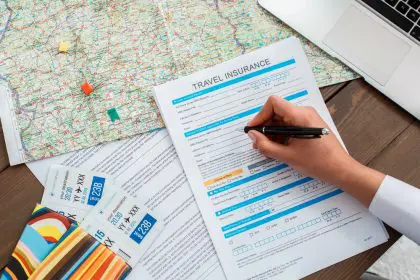Planning a family trip brings excitement and anticipation, but success lies in the details – particularly when it comes to documentation. Having the right paperwork ready ensures your family moves smoothly through security checkpoints, border crossings, and unexpected situations. Whether traveling domestically or internationally, proper documentation safeguards against delays, denials, and travel disruptions. Here’s your comprehensive guide to essential travel documents that every family should prepare before departure.
Valid identification for all family members
International travel requires passports, while domestic trips often need government-issued identification, even for children. Each family member must carry their own valid ID, meeting specific requirements for your destination. For international flights, this means current passports, while domestic travel might allow driver’s licenses or national ID cards for adults and birth certificates for children.
Understanding validity requirements Many countries require passports to remain valid for six months beyond your planned return date. For children traveling with one parent or guardian, additional documentation like notarized consent forms might be necessary. Some countries have strict requirements about passport conditions – even slight damage could result in denial of entry. Always check your destination’s specific requirements through official government websites or consulates. Verify these requirements well before your departure date to avoid complications, as rush processing can be extremely expensive.
Comprehensive travel itinerary
A well-organized itinerary serves as your trip’s blueprint, containing vital information about transportation, accommodations, and activities. While digital copies prove convenient, carrying printed versions provides backup when technology fails or in areas with limited connectivity. Consider creating a small itinerary card for each family member to carry, especially children.
Your itinerary should include:
- Flight numbers, departure times, and confirmation codes
- Hotel addresses, confirmation numbers, and check-in/out times
- Scheduled activities and reservations with booking references
- Transportation arrangements including car rentals or transfer services
- Emergency contact information for all service providers
- Meeting points and backup plans for various scenarios
- Local emergency numbers and nearby medical facilities
- Time zone differences and important local customs
Health documentation and insurance
Medical preparedness becomes crucial when traveling with family. Maintain readily accessible records of each family member’s health information, including current conditions, medications, and insurance details. Consider creating a digital health portfolio that can be accessed securely from any device.
Essential health documents Pack copies of insurance cards, vaccination records, and prescription medications in their original containers. For international travel, verify your insurance coverage extends to your destination or secure additional travel medical insurance. Consider carrying translated versions of critical medical information when visiting non-English speaking countries. Some destinations may require proof of specific vaccinations or health clearances, particularly in light of recent global health concerns.
Document any allergies, chronic conditions, or special medical needs clearly. Include blood types, previous surgeries, and current medications with dosages. Keep a list of emergency contacts including your family doctor and any specialists treating family members. For those with serious medical conditions, consider medical alert bracelets or cards in the local language.
Entry permits and visas
Research visa requirements based on your nationality and destination well in advance. Processing times vary significantly between countries, and requirements might differ for each family member. Some countries require proof of departure, hotel reservations, or minimum bank balances for visa approval.
Some destinations offer visa-free entry for short stays, while others demand extensive documentation including financial statements, employment verification, or invitation letters. Maintain both physical and digital copies of approved visas, storing them separately from originals to ensure backup access. Consider using a visa tracking spreadsheet to monitor application status, validity periods, and specific entry requirements for each destination.
Emergency preparation documents
Compile a comprehensive emergency packet containing essential contacts and legal authorizations, particularly when traveling with children. This preparation proves invaluable during unexpected situations and can significantly reduce stress during emergencies.
Critical components include:
- Emergency contacts in both home and destination countries
- Embassy or consulate information with after-hours contact numbers
- Travel insurance documentation with policy numbers and claim procedures
- Parental consent forms for children traveling with one parent
- Copies of important documents stored separately from originals
- Power of attorney or temporary guardianship documents if needed
- Bank contact information for lost card replacement
- Backup copies of essential passwords and access codes
- Local emergency phrases in the destination’s language
Final thoughts on travel documentation
Thorough documentation preparation forms the foundation of successful family travel. While gathering these materials requires effort, having complete and organized documentation allows your family to focus on creating memorable experiences rather than handling preventable complications. Consider creating a travel documentation checklist specific to your family’s needs and updating it regularly.
Start your document preparation early, creating both physical and digital copies of everything. Store documents securely but accessibly, and ensure multiple family members know their locations. Use secure cloud storage for digital copies and water-resistant document holders for physical copies. Regular review and updates of your travel documentation strategy will help ensure smooth travels for years to come. This preparation provides peace of mind, allowing you to embrace your adventure fully and focus on what matters most – making lasting memories with your family.
This story was created using AI technology.

















